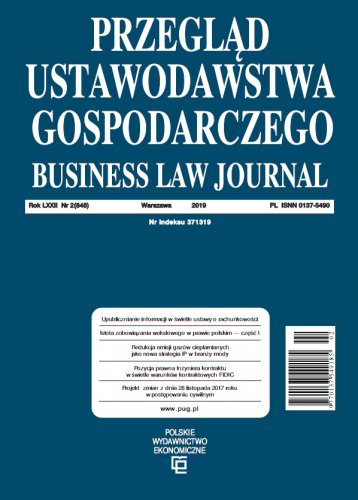A breach by a subcontractor of his contractual obligations towards a contractor is often the cause of breach of an contractual obligation also in the existing contractual relationship between this contractor (debtor) and his creditor. The creditor, suffering damage in these circumstances, is entitled to a compensation claim against his own debtor (contractor), who uses a subcontractor to perform his own obligation against the creditor (Article 474 of the Civil Code). Compensation paid by the debtor (contractor) to the creditor, determined on the basis of general principles of civil law (Article 363 of the Civil Code), constitutes the debtor's damage remaining in a normal causal relationship with the breach of the contract by the subcontractor (Article 361 of the Civil Code). This research paper includes an analysis of the subcontractor's liability for damage to the contractor (debtor), which comes down by the payment to his creditor of compensation determined on the contractual basis, in the form of a contractual penalty. The research delivered in this research paper leads to a conclusion that in the analysed situation, the subcontractor is generally only liable for the compensation paid by the contractor to his contractor only to the amount that would be due on the basis of general principles of civil law. The subcontractor is liable for the payment of contractual penalties agreed between the creditor and the debtor only if, when concluding the subcontract, the subcontractor knew about the contractual penalties agreed between the debtor and the creditor, their legal basis and amount, and only if, the subcontractor accepted the risk of incurring extended liability.
Keywords: liability; subcontractor; breach of contract; compensation; contractual penalty

